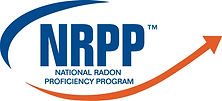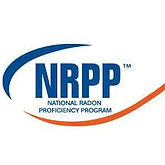

Reliable Home Inspection Service
UNAPOLOGETICALLY HONEST
HOME INSPECTIONS
Inspecting Homes Since 1993!

Large-Scale & Commercial Radon Testing
HUD & AARST Standards
From multi-unit residential radon testing to large commercial office spaces, we have you covered!
Radon Bid and design work are available for testing procedures for both HUD and AARST standards.
We have tested 490-unit apartment buildings and commercial buildings with a basement as large as 95,000 square feet!
When HUD is involved, there are two standards used for large-scale buildings. At Reliable, we are capable of designing programs to meet both sets of requirements, clearing the way for your HUD financing.
We can help design the testing program and get results quickly, smaller projects can be done with our equipment or we can ramp up to do as much as you need on your schedule by using outside testing equipment and lab.
We have 5 NRPP-listed testers on staff so no project is too big. We do testing in Delaware, Pennsylvania, and Maryland.
How to Prepare for a Radon Test
Smaller Commercial buildings can get their results in as little as two days business days, and Larger buildings/sites within 5 business days. The chart below is a good tool for interpreting radon test results. We recommend mitigation for any level above 4.0 pCi/l, as is the EPA action level.
To ensure your radon test is accurate there are some ways you should prepare for the test. The building should be kept in closed conditions for the duration of the test, as well as the 12 hours before the test. This means all windows in the building should be closed, and exterior doors should remain shut except for normal exit and entry. Open windows and doors could invalidate your test.
If the test is for a residential building, you should notify your tenants before the testing date. We can provide radon testing flyers that can be posted and emailed to your tenants.
Any equipment that is lost or thrown out during the test may incur charges.
Reliable Home Inspection Service RHIS, INC: Your #1 Resource for Commercial Radon Testing
Understanding Radon Dangers in Commercial Buildings
Radon is an odorless, invisible radioactive gas naturally released from soil and rocks. It can accumulate in buildings (especially in basements and crawlspaces), acting as a hidden hazard. The U.S. EPA estimates radon causes about 21,000 lung cancer deaths per year, making it the second-leading cause after smoking. Because you cannot see or smell radon, testing is the only way to know if a building has dangerous radon levels. For property managers and building owners, this means professional testing is essential to protect occupants.
Radon migrates from the soil into structures through any cracks or gaps in the foundation .Once inside, radon can build up in lower levels of a building. Even within the same complex, different units or floors can have very different radon levels due to construction and ventilation differences. That’s why each unit or floor should be individually tested by a certified professional – you can’t assume adjacent spaces have the same risk.



Comprehensive Testing for All Property Types
RHIS offers tailored radon testing for every commercial property type – from multi-family apartments and high-rise offices to childcare centers, hospitals, and government facilities. Large or shared structures have special testing protocols. For example, EPA studies found that about 20% of schools nationwide had at least one room above the action level of 4 pCi/L, showing that institutional buildings are often affected. We follow industry-standard methods (such as the ANSI/AARST or HUD protocol) designed for multifamily and mixed-use buildings. In practice this means we place detectors in all occupied areas at and below ground level and run tests long enough to meet those standards. Our expertise ensures that no matter the size or use of your facility, we measure radon correctly for that setting.
Regional Expertise: Delaware, Pennsylvania, and Maryland
RHIS focuses exclusively on the mid-Atlantic region, so we understand local radon issues. Pennsylvania sits in a known radon hot zone, while Maryland and Delaware have significant risk areas of their own. Delaware’s health authorities remind us that “radon can be found in one house and yet not in the one next door,” so testing each building is crucial. Because RHIS serves only DE, PA, and MD, our technicians are familiar with local geology, building practices, and state programs. We use the latest state radon maps and data when planning tests, and we stay up-to-date on each state’s disclosure and mitigation requirements. This local knowledge allows us to target our testing (for example, focusing on basements or known risk zones) and give you insights specific to your location.
Ensuring Safety, Compliance, and Peace of Mind
Safety is our top priority. Our testing meets all federal and state guidelines. The EPA’s action level for radon is 4 pCi/L; levels at or above this require mitigationdhss.delaware.gov. In fact, because no level of radon is completely safe, even levels above about 2 pCi/L warrant attention. After testing, RHIS provides a detailed report of findings. If we detect elevated radon, we outline practical next steps (such as radon mitigation options) and help you understand any compliance duties. Thorough documentation helps property managers meet disclosure laws and building codes. With RHIS handling the testing, you can be confident your commercial property is evaluated to the highest safety standards and that tenants are protected.
Three Decades of Experience and Trusted Partnerships
Reliable Home Inspection Service has over 30 years of experience in DE, PA, and MD (we’ve been inspecting homes and businesses since 1993). Over this time we’ve worked on thousands of projects, from small offices to large apartment complexes. We are also a trusted partner for local programs. For example, New Castle County’s Healthy Homes grant program has solicited professional radon testing and remediation contractors-newcastlede.gov – the very type of project we handle regularly. This deep experience means we know how to manage commercial-scale testing efficiently: coordinating multiple units, respecting building schedules, and delivering on time and on budget. Clients rely on RHIS’s track record and industry reputation for flawless execution.


NRPP-Certified Expertise
At RHIS, all radon tests are conducted by NRPP-certified Radon Measurement Professionals. The National Radon Proficiency Program (NRPP) is EPA-recognized and ANSI-accredited, meaning our technicians meet rigorous national standards. Achieving NRPP certification requires comprehensive training, an exam, and ongoing continuing education. In fact, NRPP credentials “indicate… mastery of the specific skills required to successfully complete radon testing and remedial projects”.
This ensures our team knows how to deploy equipment correctly, follow quality-control procedures, and document results precisely. Clients can trust that an RHIS-certified technician is highly qualified and follows the latest QA/QC standards in every commercial radon test.
Quick, Reliable Results and Next Steps
We understand that property managers need fast answers. RHIS uses high-grade radon monitors (including continuous electronic detectors) that can provide accurate results in just a few days. Once testing is complete, we analyze the data immediately and deliver a clear report quickly. If levels are high, we won’t leave you guessing – we will explain how to reduce radon (for example, installing a mitigation system) and can even put you in touch with certified mitigators. Our goal is to make the process seamless so you can act promptly and maintain a safe environment.
Contact RHIS for a Free Commercial Radon Testing Bid
Protect your building and its occupants by scheduling expert radon testing today. Call our Delaware office at 302-993-9100 or email info@reliablehomeinspectionservice.com to request a free bid. Our NRPP-certified technicians will work with you to design a customized testing plan. With RHIS on the job, you get the most accurate radon testing services available, delivered by a team you can trust. Don’t compromise on safety – contact RHIS now for peace of mind.
Delaware Daycare Radon Testing
All licensed childcare providers in Delaware are required to test for radon at least once every five years between October and March. Childcare facilities must also test within 6 months of renovations, remodeling, and construction. This section is a snippet, for more information on Reliable daycare radon testing, please see a dedicated page here.
Testing Procedure
For a residential building being used for child care, a test should be placed in every room used for child care that is in contact with the ground, or the lowest level used for child care.
For buildings designed for child care, every classroom on the first floor should be tested. 1/4 of classrooms on a second floor should be tested.
A short-term radon test must run for at least 48 hours in the test location. During this time windows and doors must be kept shut except for normal exit and entry.
A qualified radon tester can help you build a procedure to meet all State requirements. The button below is a list of qualified testers in Delaware.





